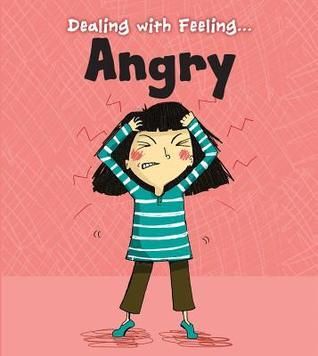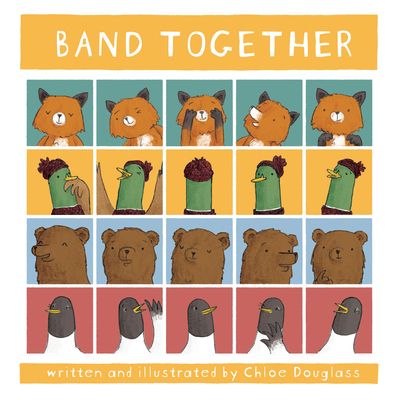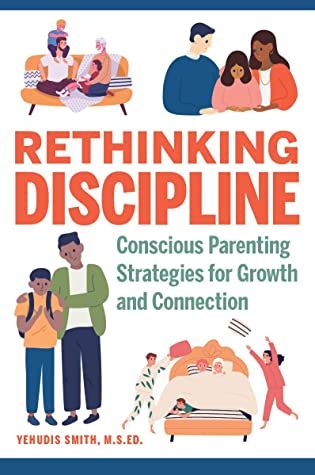While I like finding charming children’s books about positive topics, I’m also looking for children’s books about negative emotions. I crave the support of a book that can help me learn how to cope with my child’s big feelings. A gem I’ve discovered in the children’s sections of the libraries I visit is the parenting section. Here, I’ll find a small selection of parenting books and children’s nonfiction that deal with emotions, both positive and negative. However, this section is often small, usually residing on one or two shelves. In any case, I don’t often find books about negative emotions in the general children’s section. If they’re there, I’m not seeing them displayed as often as books with positive emotions. So why don’t more children’s books feature negative emotions? In a New York Times (2016) article, KJ Dell’Antonia discusses how, “instead of allowing a child to fully experience a negative emotion, parents often respond with what Dr. David describes as emotional helicoptering. ‘We step into the child’s emotional space,’ she said, with our platitudes, advice and ideas. Many common parental strategies, like minimizing either the emotion or the underlying problem or rushing to the rescue, fail to help a child learn how to help herself.” Recent research takes a closer look at the prominence of negative emotions in children’s books.
Research on Negative Emotions in Children’s Books
Chentsova-Dutton, Y., Leontyeva, A., Halberstadt, A. G., & Adams, A. M. (2021) conducted two studies comparing how much children’s books in Russia and the U.S. focus on negative emotions. The first of the studies compared three groups of parents: those born and living in the U.S., those born and living in Russia, and those born in Russia who later moved to the U.S. The parents were asked to describe how often they read books to their children that featured ten different emotions, including positive and negative ones. Neuroscience News (2021) shares, ““There were no differences across groups when it came to the frequency of positive emotions — everybody likes a book with some positivity,” says Anita Adams, a graduate student at the University of Kentucky who worked on the project as an undergraduate at NC State. “However, Russian parents chose to read books with more negative emotions than U.S. parents. Russian American parents were somewhere in between those two groups.” In the second study, Chentsova-Dutton et al. (2021), analyzed 40 bestselling preschool fiction books from the U.S. and Russia, looking at the range of emotions represented. Neuroscience News writes, “the text of Russian books referenced anger and sadness more often than the U.S. books; and illustrations in Russian books depicted happiness, anger and fear more frequently than the U.S. books.” Both studies suggest that negative emotions may have greater focus in children’s books in Russia as compared to the U.S.
Why Are Conversations With Children About Negative Emotions Important?
A valuable picture book I found in the parenting section of the library includes Dealing With Feeling Angry, a book in Isabel Thomas’s Dealing With Feeling series. In clear and easy to understand examples for children, this book normalizes and validates feeling angry. Thomas explains,“It is okay to feel angry, but it is not okay to hurt people. You need to find a safe way to let anger out.” (p. 11). The short chapters address important topics, including, “What If I Am Too Angry To Talk?” (p. 14), “What Are Safe Ways to Let Anger Out?” (p.16), and “How Can I Help Myself Calm Down?” (p. 18). When I place this book in a stack to choose from, my son often picks this one to read again. I think it’s a testament to how much he appreciates the emotional health support. Children’s books about negative emotions give me the words to talk about negative emotions, like anger, with my son. They also give my child the words to express his feelings. We are then both better equipped to cope with these feelings when they arise. In a PBS article on toddler emotions (2015), Claire Lerner, LCSW-C, emphasizes the importance of emotional regulation in children. She writes, “Research has also shown that children’s ability to effectively manage their full range of emotions — also known as self-regulation — is one of the most important factors for success in school, work and relationships into the long-term.” Lerner goes on to discuss how parents can help children develop these emotional skills. “So a critical first step in helping your child learn to cope with her feelings is not to fear the feelings, but embrace them — all of them. Feelings aren’t right or wrong, they just are. Sadness and joy, anger and love, can co-exist and are all part of the collection of emotions children experience. When you help your child understand his feelings, he is better equipped to manage them effectively.” We don’t have to be afraid of negative emotions. Having candid conversations with children about negative emotions can help them cope with their feelings. It can also validate and normalize these feelings. Rather than brush aside negative emotions, we can express empathy and teach our children healthy ways to manage all of their feelings.
Resources to Help Start the Conversation About Negative Emotions
Looking for support on addressing negative emotions with children? Below, I wanted to share some resources that have helped me in my parenting journey. What resources have you found helpful?
Social Media Accounts
themompyschologist: Clinical Psychologist and parent coach Dr. Jasmine McCoy is The Mom Psychologist, and I first got hooked on her parenting advice after reading her life-saving book, The First-Time Parent’s Guide to Potty-Training. biglittlefeelings: The dynamic duo behind big little feelings includes Kristin, a parent coach with a background in international maternal childhood education, and Deena, a licensed marriage and family therapist specializing in children. theotbutterfly: Occupational therapist Laura runs TheOTButterfly account, with a focus on advice for parents of neurodivergent children.
Books
If you’d like to browse helpful resources from other Rioters related to children’s emotional health, check out the following:
23 Children’s Books About Emotions for Kids With Big Feelings 8 Children’s Books About Feelings 10 Picture Books About Anxiety For Children Who Worry



